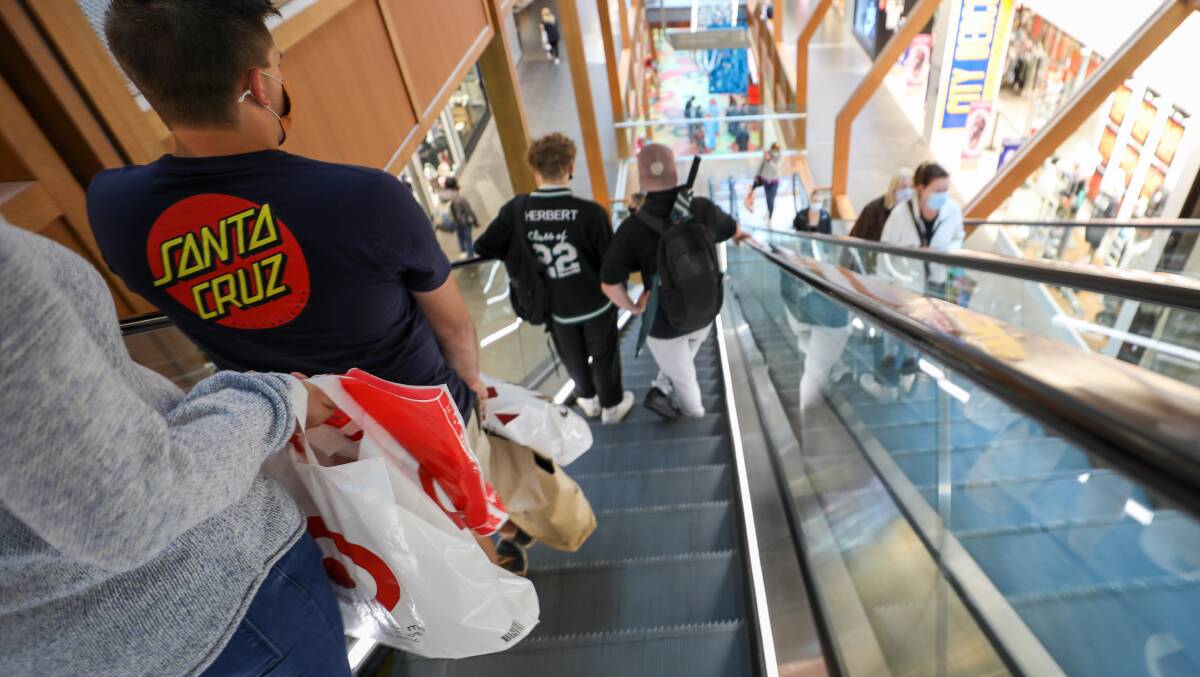
Omicron's potential economic slowdown may not be as bad as first feared, with new data from the nation's largest business bank revealing Australian's kept spending despite mass isolations.
Transaction data from National Australia Bank for January has revealed total spending across its network only dipped 1 per cent compared to one year ago, dousing alarming concerns the economy had lost steam due to the arrival of the new variant.
Data provided to The Canberra Times outlines restaurant and retail spending were above pre-pandemic levels by 5 and 15 per cent respectively.
It also suggests spending in the second of January was stronger than the first two weeks, particularly accommodation and travel.
NAB business bank executive Andrew Irvine said the result was "better than expected", given the number of businesses impacted by staff shortages and isolations.
"There are absolutely businesses out there doing it tough but we are really encouraged by the uplift in consumer spending especially across restaurants and retail, especially for the last fortnight," he said.
"Supply chain and labour challenges are certainly hampering performance but so many businesses made tough decisions at the start of the pandemic that have put them in a great position to weather this current storm."
Hospitality spending compared to January 2021 was down 5 per cent and did not kick back strongly in the last few weeks of the month.
Accommodation compared to last year was down 2 per cent.
The bank's merchant data coincided with further figures which suggested the economy at the end of the 2021 was still ticking upwards.
NAB Economics quarterly business survey suggested confidence rebounded despite structural constraints in December arising from the arrival of Omicron.
Chief economist at NAB, Alan Oster noted the rise in the business confidence by 20 points to an index position of 18 was largely influenced by vaccination drives and an end to lockdowns.
"The economy was showing considerable strength prior to the spread of the Omicron variant, and that translated into a positive outlook for the coming months," he said.
"We now know that Omicron has dampened that recovery somewhat but, fundamentally, we expect that positive trajectory to continue when the current virus outbreak recedes."
The survey found 85 per cent of respondents reported available labour was impacting output levels, while 47 per cent flagged the availability of materials was a constraint to do business.
"A large share of businesses reported facing supply constraints in late 2022 as disruptions to global supply chains as well as a tightening labour market began to bite, and that has translated into higher inflation in official data," Mr Oster said.
"The key question will be when, if at all, supply chain pressures ease as well as how quickly wages respond to an increasingly tight labour market."
Thursday also saw the release of latest building approvals data which bucked expectation for the month of December and rose 8.2 per cent overall.
Market consensus was a anticipating a 1 per cent dip, however the monthly figure was spurred by a 27.5 per cent jump in new unit approvals.
Private sector house approvals fell 1.8 per cent over the month.
Westpac senior economist Matthew Hassan said the monthly data is usually volatile, but flagged building approvals have been falling sharply overall since May.
"While work done will still see strong gains near term due to the large pipeline coming through - well over 200,000 dwellings are still under construction - and omicron-related delays at the start of 2022, growth is likely to be tapering off by year end," Mr Hassan said in a note.
New South Wales recorded the highest level of dwelling approvals for December.







